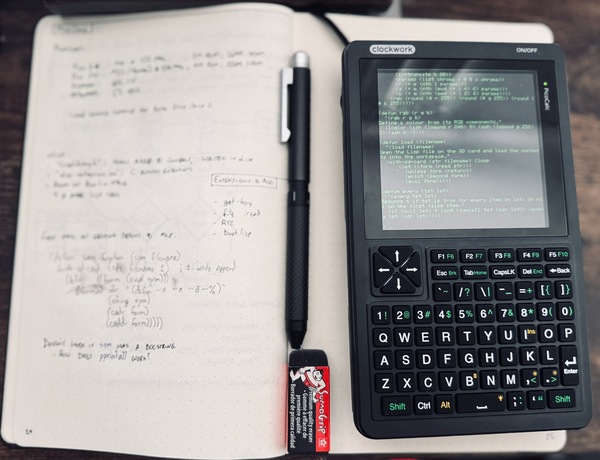About
The title is a play on Handmade Dev, an offshot of Handmade Hero.
I've been a fan of Lisp for a long time, with copies of On Lisp, ANSI Common Lisp, Let Over Lambda, AMOP, and so forth long on my bookshelf. Personally, I prefer Common Lisp, but I've written production code in Clojure before and have spent a fair amount of time in Racket as well.
Another interest of mine is homebrew computers; I've got several Z80-based computers, and I've been building little computers for a while.
These interests align with a couple projects. I started writing a handheld lisp OS based on Feather SAMD51 board with a blackberry wing (a keyboard and a display). However, when the PicoCalc came out, it really piqued my interest.
From one of the posts on here:
I found uLisp a few years ago, but I didn't really have a use for it at first. I don't need a serial terminaly-only Lisp system given my comfort in writing Arduino C++. I started work on an ARM SAMD-51 system using a Blackberry Featherwing from Solder Party, but never got uLisp building with PlatformIO (where all my other tooling was).
When the PicoCalc came out and I saw it included a uLisp image, I immediately bought one. This was quickly followed by T-Deck and repurposing some existing Teensy 4.1s...
My goal is to have a handheld Lisp platform that I can extend and customize as needed to explore various maths and physics things, take some notes on, and generally interact with the world. The T-Deck is acceptable for now, but I'd much rather build on the PicoCalc.
Most of this blog is going to be the exploration of Lisp on a handheld (and in particular the PicoCalc), building a tightly-coupled system and user code. It may involve other Lisp variants or maybe even the occasional Forth, but what I'm really interested in is a handheld Lisp computer that I don't need other computers to use.
